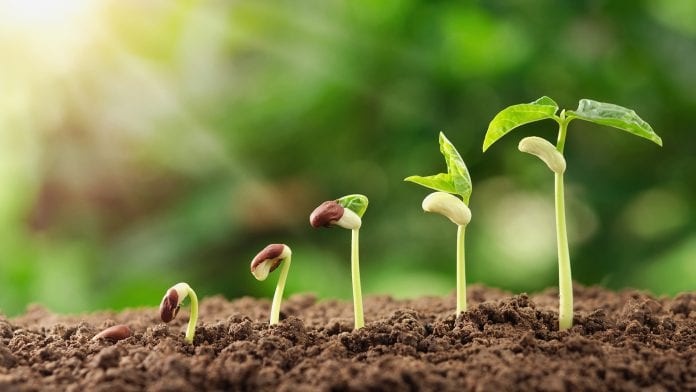
Applying engineering principles to the cannabis industry, EnCann is an emerging cannabis extraction and manufacturing solutions provider with a focus on efficiency, integrity and quality.
Using patent-pending, proprietary ethanol extraction technology, EnCann provides customised cannabis oil extraction services for Canadian cannabis and hemp producers.
EnCann’s services are designed to help bridge the gaps from seed to sale, allowing businesses to focus on what they do best. By providing toll extraction, purchase and sale of active pharmaceutical ingredients (APIs), white-labelling and cannabis flower packaging, EnCann helps you to deliver your vision and products to market.
We ensure that the goals of your business are met.
Changing landscape of the Canadian cannabis industry
Since the emergence of the recreational Canadian cannabis market in October of 2018, there has been a focus on expanding cultivation capacity, with massive greenhouse buildouts being highlighted by nearly all major cannabis companies.
In 2018, indoor cultivation reached over 187,000 square metres with an additional 850,000 square metres of inactive cultivation area still to come online. 2019 has seen much of this inactive indoor space start producing and large-scale builds continue to be announced. This additional indoor capacity will be supplemented by outdoor cultivation for the 2020 season.
Until now, outdoor cultivation has been limited due to regulatory hurdles including high cost of security and monitoring of crops. As outdoor cultivators start to harvest in earnest in 2020, the volumes of extract grade material yielding tetrahydrocannabinol (THC) from the combined indoor and outdoor crops, will increase exponentially. Extract grade material is generally defined in the industry as cannabis biomass unfit for smoking and still holding a 2-10% cannabinoid content, i.e. trim, stems, fan leaves, etc.
Total registered hemp cultivation (defined as cannabis strain with <0.3% THC) for 2018 was over 31,000 hectares, with 2019 reports expected to see further expansion. As more cultivars are approved by Health Canada, the volume of high-quality extraction material yielding the desired cannabinoid cannabidiol (CBD) is likely to increase drastically. Currently, extraction material ranges from 2-10% CBD with higher yield crops becoming more common.
October 17 2019 marked the expansion of the cannabis regulations in Canada allowing for concentrates, vapes, edibles and topical products. The edibles market alone is expected to reach $1.6bn (~€1.1bn) according to Deloitte. The commonality between these new product types is that they all require extraction or the input of extract for their formulations.
Extraction capacity, however, has lagged behind the volume of extraction grade biomass available both in cannabis and hemp and the expected demand for these new extract products.
The move away from vertical integration
Vertical integration describes when a single business covers all stages from raw material to finished goods; specifically, in the cannabis space this means cultivation through processing, packaging and sale. This approach has advantages in a nascent industry with no established supply chain as it allows for control over all steps.
Until recently, vertical integration was the only way to reliably get product to market as service providers to the cannabis industry were not yet operational. Vertical integration, however, requires a business to contain the knowledge and expertise for each step in the process. Cultivation requires a very different knowledge base from extraction. Although a large corporation may recruit the talent needed for each stage of production, coordination and oversight becomes difficult.
Vertical integration is also incredibly capital and resource intensive. With public capital investment into the cannabis industry seeing a decline as the focus shifts from hype to results, young cannabis companies will struggle to achieve full vertical integration in a reasonable time period and cost. Vertical integration will likely become less common as more businesses make the choice to refine their focus on a smaller market segment.
With the expansion of permitted products, extraction is predicted to be the bottleneck in the journey from seed to sale. With a planned extraction capacity of 50,000kg/month on opening and a flower packaging capacity of 1200kg/month, EnCann aims to drive the growth of the cannabis industry by bridging the gaps in the supply chain, allowing businesses to focus on what they do best.
Supply chain management for active pharmaceutical ingredients
In this new industry, supply chain management, particularly of cannabinoids, is very problematic. Balancing growing cycles with production schedules and predicted demand is essential to ensure that sales are maximised without products going to waste. This is especially problematic for hemp derived CBD products. Although CBD is needed year round, Canadian hemp crops are annual. With the demand for CBD in coming years still being relatively uncertain, having a reliable and adaptable supply of CBD can mean the difference between profits and empty shelves.
Edibles manufacturers in particular will be challenged to maintain a consistent supply chain. Due to regulatory requirements for food manufacturing facilities and cannabis manufacturing facilities, achieving extraction and the manufacturing of edibles in the same facility is very difficult. This has led many emerging edibles manufacturers to seek their THC and CBD inputs from outside sources.
Through a network of cultivators, EnCann will ensure that high quality active pharmaceutical ingredients (APIs) including CBD and THC are available to cannabis companies year-round.
Bringing innovation to the cannabis industry
When compared to the production capacities of longer established extraction industries – oil and gas processing for example – the extraction capabilities of cannabis-focused extraction equipment has fallen behind. Available systems have relatively low throughput, are expensive and require skilled operators in order to maintain product and quality consistency.
By applying engineering principles and a bit of creative thinking, EnCann has developed a patent-pending system capable of extracting 500 pounds of biomass per hour. This system does not co-extract the fats, waxes or chlorophyll from the biomass, significantly reducing post processing requirements. This method combines the scalability of traditional ethanol extraction used in the pharmaceutical industry with the specificity of supercritical CO2 extraction, all at room temperature. This is a huge advantage over traditional ethanol extraction systems, which require chlorophyll remediation, and over cryogenic ethanol systems which have enormous energy input requirements to maintain the sub-zero temperatures required to not co-extract undesirable compounds.
As a brief primer, when performing a traditional alcohol extraction, the cannabis is soaked in alcohol, usually ethanol, the plant material is removed, the liquid filtered, and the alcohol is removed from the solution using some form of evaporation. One of the biggest challenges is the inherent polarity of solvents like ethanol—meaning it has a propensity to mix with water and dissolve water soluble molecules like chlorophyll. Removing the chlorophyll from the extract is important as it produces an undesirable green colour and a bitter flavour.
Performing this process at cryogenic temperatures (below -40 degrees) will minimise or eliminate the amount of undesirable chlorophyll and waxes that are co-extracted along with the desired cannabinoids; cannabinoids are the psychoactive, medically useful, primary extraction targets of most cannabis extraction. This method can be performed at atmospheric pressure, but the temperature is carefully controlled, especially during evaporation. This process takes time and must be done carefully to avoid danger as ethanol is highly inflammable.
One of the biggest benefits of this form of extraction is that there is no risk of leaving toxic residual chemicals in the final cannabis extract and, it enables the co-extraction of all compounds of interest; chiefly cannabinoids and terpenoids. Terpenoids are the delicate and low concentration (generally well under 3% by mass) flavour molecules that give specific cannabis chemotypes (strains) their character, scent, taste, and likely even affect an individual’s resulting observed effect upon consumption of cannabis products.
With the EnCann extraction system, terpene loss is minimised, cannabinoids are extracted rapidly and the finished product has the colour, clarity and taste that customers are looking for.
White labelling
White labelling services involve the manufacture of customer ready products, labelled with the customer’s branding. Using a white labelling service allows cultivators to bring their products to market without the capital expenditures required for licence amendments, specialised extraction, formulations, packaging and logistics. This allows for an expanded product line with less financial risk. Of course, product quality and consistency are key for customer experience and must exceed expectations in order to improve the brand’s customer reach.
EnCann’s white labelling services include:
• Oral oils and tinctures;
• Concentrates;
• Full spectrum vape cartridges (contain much of the original terpene content); and
• Topical and cosmetic products
Regulation of the expanded product line is strict with each ingredient needing to conform to health and safety standards. Though many of these products have been previously available on the grey or black market, these products were never formally tested for cannabinoid content or product stability. Maintaining the product feel that the customer is looking for, while ensuring that the product is safe to use, is at the heart of EnCann’s formulations and white labelling services.
Services for micro cultivators
Canadian cannabis micro cultivation licences restrict the cultivation area to 200 square metres and these businesses face unique hurdles in delivering product to consumers. To date, there have been only a handful of these licences approved due to regulatory challenges. As more of these facilities come online, they open a new opportunity to the Canadian market.
With restricted revenues due to limits on cultivation, these businesses resemble a family enterprise more than a multinational conglomerate. For these new cultivators, establishing revenues is key. In order to do this, they must find buyers for their products. The two primary sales streams are to sell wholesale to another, often larger, cultivator or processor, or to employ a processor to package their cannabis for sale. Without a processing licence, these cultivators cannot package, extract or formulate their own product for direct sale to customers.
By providing flower packaging, EnCann enables these cultivators to sell directly to the recreational market, making them less dependent on other businesses for their survival. Toll processing (extraction for a fee) and white labelling services allow micro cultivators to bring speciality products to market without acquiring a second licence and without the expense of purchasing large scale manufacturing equipment for a small number of units for each product. This will increase the range of products available to consumers and allow for increased brand differentiation.
Innovation and research
With over 140 known cannabinoids and research only just beginning, the therapeutic potential of cannabis is largely unknown. Most high-quality trials to date have used synthetic cannabinoids with few using whole plant material and even fewer using standardised cannabis extracts. Research into the therapeutic differences between cultivars (strains) or terpene profiles is largely non-existent. Working with our industry partners, EnCann is working on bringing unique cannabinoids to the market. Areas of future research include terpenes, novel cannabinoids including THCA and CBN, and custom terpene/cannabinoid blends.
Terpenes are aromatic molecules that are created in the secretory cells of glandular trichomes in cannabis plants. Terpenes are responsible for the aromas and some of the physiological effects of cannabis. The intensity, onset and duration of the effects of cannabis all depend on the ratios and formulations of cannabinoids and terpenes. Sometimes referred to as ‘the entourage effect,’ cannabis compounds work synergistically to produce the variety of effects seen with cannabis consumption.
Research on non-cannabis derived terpenes suggest immense therapeutic potential. Many of them have antibacterial, antifungal and antiviral potential and are strong anti-inflammatories. Myrcene (earthy, herbal scent) is believed to help pain. Linalool (scent of lavender), may be helpful with anxiety. Pinene has potential as a future treatment for Alzheimer’s disease due to its acetylcholinesterase inhibiting properties. How these terpenes need to be administered, in what quantities, when and for how long remain to be seen.
Currently, Canadian cannabis products are restricted to THC and CBD with no isolates of other cannabinoids commercially available. Terpenes and less prevalent cannabinoids are often not listed, even though they may contribute to the overall effect of the cannabis.
Novel cannabinoids represent a massive repository of physiologically active molecules for medical study. Tetrahydrocannabinolic acid (THCA), the non-decarboxylated form of THC found in the cannabis plant, has shown potential as an anti-epileptic and anti-inflammatory.
Its lack of psychoactivity (will not get you high), allows for higher doses to be tolerated compared to THC. Cannabinol (CBN) is thought to produce sedation and may be helpful for sleep but evidence is lacking and sometimes contradictory. By perfecting isolation or customising blends of terpenes or novel cannabinoids, EnCann opens the door for this research to be done.
Hands on private company
As a small, privately owned company led by a close team of professionals, EnCann offers a specialised customer experience. Our pride in our work, integrity and hands on approach ensure product consistency, safety and quality.
Sarah Roberts RPh
CSO
EnCann Solutions
sarah.roberts@encann.ca
Tweet @EnCannSolutions
www.facebook.com/EnCannSolutions
www.linkedin.com/company/encann
encann.ca
This article will appear in the first issue of Medical Cannabis Network which will be out in January. Click here to subscribe.







